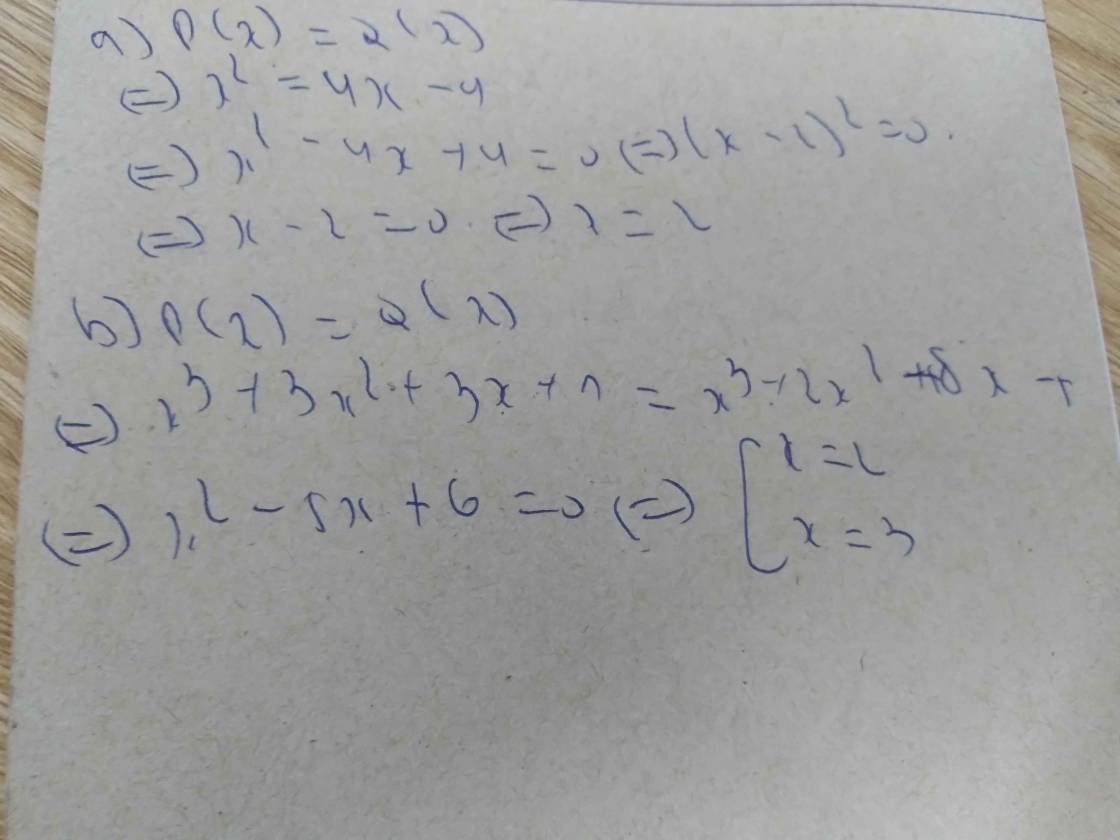
Hãy nhập câu hỏi của bạn vào đây, nếu là tài khoản VIP, bạn sẽ được ưu tiên trả lời.


a)\(A=1+x+x^2+x^3+..........+x^{2012}\)
+)Thay x=1 vào biểu thức đc:
\(A=1+1+1^2+1^3+..............+1^{2012}\)
Có 2013 số hạng
\(\Rightarrow A=1.2013=2013\)
b)\(B=1-x+x^2-x^3+..............-x^{2011}\)
\(\Rightarrow B=\left(1-x\right)+\left(x^2-x^3\right)+............+\left(x^{2010}-x^{2011}\right)\)
+)Thay x=1 vào biểu thức được:
\(B=\left(1-1\right)+\left(1^2-1^3\right)+...........+\left(1^{2010}-1^{2011}\right)\)
\(\Rightarrow B=0+0+......................+0=0\)
+)\(C=A+B\Rightarrow C=2013+0\Rightarrow C=2013\)
Vậy C=2013
Chúc bn học tốt

Nếu hai đại lượng y và x tỉ lệ nghịch với nhau theo hệ số tỉ lệ a thì:

Chọn đáp án C

\(a)\dfrac{5x+4}{x^2+1}=0\)
\(\Rightarrow5x+4=0\)
\(\Rightarrow x=-\dfrac{4}{5}\)
Vậy \(A=0\Leftrightarrow x=-\dfrac{4}{5}\)
\(b)\dfrac{5x+4}{x^2+1}>0\)
Do \(x^2+1>0\forall x\)
\(\Rightarrow5x+3>0\)
\(\Rightarrow x>-\dfrac{4}{5}\)
Vậy \(A>0\Leftrightarrow x>-\dfrac{4}{5}\)
\(c)\dfrac{5x+4}{x^2+1}< 0\)
Do \(x^2+1>0\forall x\)
\(\Rightarrow5x+4< 0\)
\(\Rightarrow x< -\dfrac{4}{5}\)
Vậy \(A< 0\Leftrightarrow x< -\dfrac{4}{5}\)

a, \(A=x^2\left(2x-1\right)+x\left(x+8\right)=2x^3-x^2+x^2+8x=2x^3+8x\)
Thay x = -2, ta có:
\(2\cdot\left(-2\right)^3+8\cdot\left(-2\right)=-32\)
b, \(A=2x^3+8x=0\\ \Leftrightarrow2x\left(x^2+4\right)=0\\ \Leftrightarrow x=0\)
Vậy A=0 khi x=0
a,A = \(x^2\).( 2\(x\) - 1) + \(x\)(\(x+8\))
A = 2\(x^3\) - \(x^2\) + \(x^2\) + 8\(x\)
A = 2\(x^3\) + 8\(x\)
b, \(x=-2\) ⇒ A = 2.(-2)3 + 8.(-2) = - 32
A = 0 ⇔ 2\(x^3\) + 8\(x\) = 0
2\(x\left(x^2+4\right)\) = 0
vì \(x^2\) + 4 > 0 ∀ \(x\) ⇒ \(x\) =0

a) x(2x+1)-x2(x+2)+(x3-x+3)= 2x2+x-x3-2x2+x3-x+3= 3
b)x (3x2-x+5)-(2x3+3x-16)-x(x2-x+2)= 3x3-x2+5x-2x3-3x+16-x3+x2-2x= 16


